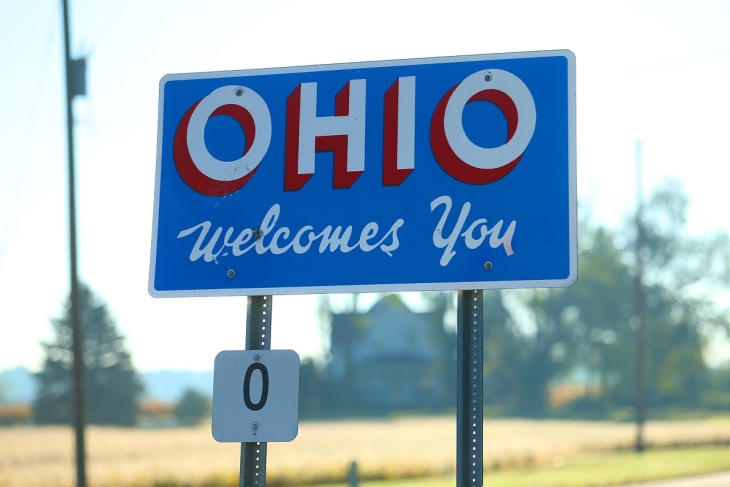Moving to a new state often means new career opportunities, a better quality of life, or closer proximity to loved ones. But making these transitions comes at a cost, which for some include the need to gain occupational licensing in the new state. To relieve this burden, a group of Ohio legislators recently called for an easing of regulations for people with out-of-state licenses—what’s known as “licensure reciprocity.” The idea is fairly straightforward: When people change states, they don’t suddenly forget how to do their jobs. Hence, workers should be able to simply trade in their licenses without having to go through regulatory hoops all over again.
Using Arizona and Pennsylvania’s recent reforms as a model, legislators seem to be eyeing reciprocity across a variety of professions. While it’s not yet clear whether educator licensure will be included, it should be part of the package. In a Brookings Institution paper, Tom Dee and Dan Goldhaber recommend that states “create meaningful licensure reciprocity” as an effort to address teacher shortages. The National Council on Teacher Quality suggests that states “help make licenses fully portable,” albeit with a debatable proviso that they limit reciprocity to “effective” teachers (how a state would implement this isn’t clear). Finally, speaking to the media outlet The 74, researcher Cory Koedel notes the adverse impacts of licensing requirements in border districts where out-of-state teachers cannot easily fill vacancies despite living just a few miles away.
To be sure, educators coming to Ohio don’t need to start from square one in terms of licensing. For some, it may even be a smooth transition without much red tape. But others face special licensing requirements, even though they may have decades of experience and a stellar teaching record. Let’s take a look at the barriers that out-of-state teachers and principals might face when trying to obtain an Ohio license.
Teachers
Because licensing requirements vary from state to state, most U.S. teachers cannot simply exchange their out-of-state license for a new one. In a 2017 analysis, the Education Commission of the States (ECS) identifies just six states as having “full reciprocity” policies for out-of-state teachers. Ohio is not one of them. Instead, the state adds a few extra requirements before out-of-state teachers can receive an Ohio teaching license. They include the following stipulations:
- Licensing exams. Out-of-state elementary and middle school teachers must pass an Ohio-specific licensing exam on reading instruction that takes up to four hours and costs $139. In addition, some out-of-state teachers—no matter their grade or subject area—may need to take an Ohio content and/or pedagogical licensing exam if their former state didn’t require a comparable test. Schools are permitted to hire teachers who haven’t fulfilled Ohio’s exam requirements on a temporary, one-year license. However, this license is non-renewable, so a teacher must pass any required exam within this timeframe to receive a standard license.
Maintaining a requirement for out-of-state PK–3 teachers to pass the reading foundations exam is perhaps worth the costs, since other states might not emphasize early literacy as much as Ohio. But requiring out-of-state teachers to pass other licensing exams doesn’t make as much sense. Research has not found a convincing link between licensing test scores and higher teacher performance. Chad Aldeman of Bellwether Education Partners discusses data from Arkansas and Washington that reveal almost no correlation between licensing scores and performance. And a study of Los Angeles teachers by the RAND Corporation discovers no relationship between licensing scores and performance. Unfortunately, no analysis exists on whether passing Ohio licensing exams predicts better results, nor whether asking experienced out-of-state teachers to pass an exam delivers any benefit. We do know, however, that this requirement is a direct expense for many out-of-state educators—and it may also discourage quality teachers from working in Ohio, a type of “opportunity cost.” - College coursework. Out-of-state elementary and middle school teachers may need to take additional college coursework in reading instruction, if they haven’t already taken such courses. For those who haven’t met these course requirements, this could cost hundreds, if not thousands, of dollars not to mention the expense of time. Ohio does allow schools to hire a teacher if they have already completed at least half of the coursework requirements, but a standard Ohio license cannot be awarded until all such courses are completed. Akin to the exam requirement, the course requirements appear somewhat sensible at a surface level, but it’s questionable whether these extra courses deliver benefits that outweigh the costs.
Principals
Teacher licensing garners the most attention in policy debates, but school leadership positions also require occupational licenses. One such position is the school principal. Ohio does not extend licensure reciprocity to principals: An out-of-state principal—again, no matter their experience or track record as a school leader—must meet the same requirements as an Ohio resident. At first blush, that doesn’t sound unreasonable. However, because principal licensing requirements vary from state to state, it may not be as simple as trading in licenses. Consider some potential complications.
- Master’s degrees. Ohio requires principals to hold a master’s degree. While this requirement likely applies in rare cases—most states require such a credential—at least a half-dozen states don’t have this requirement to be a principal. For any principal with “only” a bachelor’s degree, obtaining an advanced degree is sure to be onerous—not only the cost of tuition but foregone salary as well if they have to leave the workforce for school.
- Teaching experience. Ohio requires principals to have at least two years of classroom experience before they can be licensed as a principal. However, a few states such as Florida and Michigan don’t have such a requirement. It’s not exactly clear what would happen in such cases, but these individuals may need to go through Ohio’s alternative principal licensing route which itself includes a number of requirements.
- Licensure exams. Ohio requires principals to pass a licensing exam, but other states do not. For out-of-state principals who have not passed a comparable licensing exam, they’d likely need to pass Ohio’s educational leadership exam which takes up to four hours and costs $105.
***
Ohio should adopt policies that help to attract great teachers and leaders, no matter where they currently reside. One way to support this goal is to make obtaining an Ohio license as painless as possible for out-of-state educators. Removing licensing requirements that don’t relate to the safety of children, would make the process more seamless and less costly. While some may argue that special Ohio-specific requirements such as extra licensing exams and coursework are necessary quality controls, the evidence that they improve education is weak or lacking. Policymakers should also be mindful that these individuals would possess at least a bachelor’s degree, would have already gone through another state’s licensing process (which require some form of teacher or principal preparation), and must be hired by an Ohio school before they can start work. Full licensing reciprocity for teachers—and all professions in K–12 education—would respect the experience of out-of-state educators, widen the hiring pool for schools needing to fill vacancies, reduce transition costs for people on the move, and make Ohio a more welcoming place for talented individuals to work. What’s not to like?


